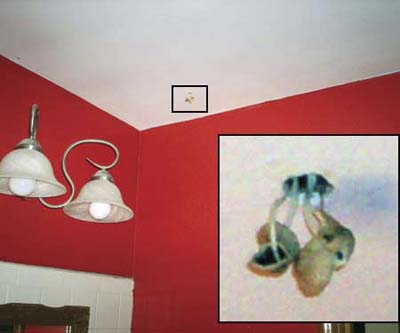
Our Definitive Guide to Buying a Home – Part 3
The final installment is here! If you haven’t been following along, these past weeks have been dedicated to the process of buying a home.
First, we asked you 4 questions you had to answer before you could start your search, which you can read here.
Last week, went over house hunting help to ensure you find the home that fits your budget and your needs. You can read that post here.
The next steps to owning a home are fast and overwhelming. We might argue the most confusing as well. From making an offer, to closing contracts, to mortgage mayhem, the process is daunting, which is why we have taken the time to lay these steps out for you:
Making the offer
Once you have found a home that fits your house hunting needs, move quickly to make your bid offer. But do not take a stab in the dark for this. Use your agent for advice and try to find out the prices of a few other houses that had sold recently in the neighborhood.
Rather than guess what a seller is willing to negotiate, focus instead on what you can negotiate. Put in an offer that sticks with your price limit. This doesn’t mean you can’t get creative in satisfying everyone’s financial needs. Ask if the seller will throw in appliances if you meet their price, or take them away in exchange for a lower price. You can also mitigate certain risks by making the homeowner liable for undisclosed or unrecognized issues, within a certain period. They will probably want a modest premium in exchange, but an honest seller will be willing to discuss these.
Most importantly, expect to miss-out on a few homes before you find the right one with the right bid. People are typically in this process of finding and bidding on homes for six months or more!
In short:
Don’t drag your feet.
Don’t make a clueless bid.
Don’t try to guess what the seller is willing to negotiate.
Don’t expect the win the first time.
Closing, aka entering into Contract
First, have cash ready for your down payment and closing costs. Lenders like to see 20% of the home’s price as a down payment. Do not skimp here, because this leaves you in a much better equity position. The more you can give up front in cash the better.
When receiving your contract, ensure your agent reviews this document with you. You two want to make you read that the deal is contingent upon you obtaining a mortgage, a home inspection that shows no significant defects, and a guarantee that you may conduct a walk-through inspection before closing.
Beyond the down payment and loan fees, be prepared to pay other closing costs such as appraisal fees, attorney fees, title insurance costs, and inspection at this time.
You may also have to make a good faith deposit, usually 1-10 percent of the purchase price, usually deposited into an escrow account.
Inspection
This may be the most straightforward part… but we should state anyway:
Never, ever, agree to skip a home inspection for a smaller price. This almost always backfires.
Even better, hire your own home inspector and be present during the examination, so no stone goes un-turned. Do not hesitate to give everything an once-over. Flush toilets; test the garage door; run the dishwasher; etc. You would be surprised how small details can turn into hundreds of dollars in repair that you did not expect upon moving in.

Something you don’t want to see but will apparently have to look for: mushrooms on a ceiling! Yuck!
HUD settlements
About two days before the actual closing, you will receive what the home buying industry calls a final HUD settlement statement from your lender.
This will also include the cost of the title insurance, and if you have not already done so, may require you setting up an escrow account.
Mortgage Options
Possibly the biggest topic of discussion for your new home:
Just say no to risky mortgage options.
Stick with a fixed-rate mortgage, and try your hardest to do a 15-year mortgage. The reason being is a 15-year mortgage allows you to save a ton of money over the life of the loan.
Don’t tell yourself “I’ll get a 30-year mortgage but pay it like a 15-year mortgage. That way, if an emergency comes up, I’ll have a cushion…”
As money guru Dave Ramsey says, finances are 80% behavior, and for most of us, our usual behavior does not include paying for more than we have to, even if we know the practice would make things better for us in the end.
Take out a Homeowner’s Insurance Policy with an Independent Insurance Agent
Because everyone’s needs are not the same, the average cost of homeowner’s insurance can vary. Consult an independent insurance agent to help assess your needs and find the insurance policy that is right for you: unioncolonyins.com/homeowners
Categories: Blog
